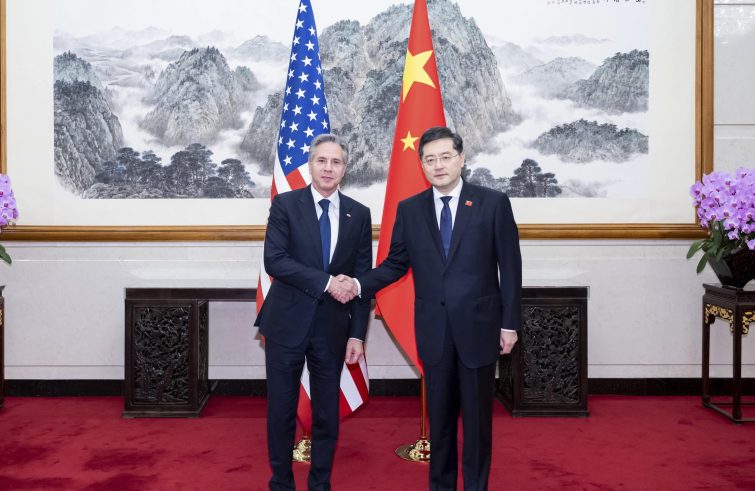
An important but not decisive face-to-face meeting. The meeting in Beijing between Washington’s Secretary of State, Antony Blinken, and China’s Foreign Minister, Qin Gang, represents a significant step, a prelude to other meetings that could keep relations between the two superpowers moving forward. There are countless open dossiers on the table, starting with the future of Taiwan, which has always been in Beijing’s sights. Alessandro Politi, director of the NATO Defense College Foundation, talks to Sir about the back-and-forth between China and the United States taking the form of competitive peaceful coexistence.
Director, is the China-US meeting a good sign?
This talk is important but it is only a piece of the story. Caution is in order, however, there are some issues that could be addressed. The Chinese have always adopted a multi-level communication strategy, where the senior levels are somewhat softer. There is much mutual distrust beyond today’s smiles. There is a practical assessment of distances, interests and possibilities to ease tensions. There are common interests between the two countries on which the Republican Congress wants the Chinese to cooperate. One example is synthetic drugs, which have become a national scourge and a political issue. China is a major producing nation, but it is not the only one because it is alongside countries in North and South America, Europe and Southeast Asia. The U.S. wants the Chinese to cooperate with the Drug Enforcement Administration, restricting the flow of precursor chemicals, but does not want to directly address the cause, which is the close relationships between mafias that enable trafficking. A world in which the Mexican cartels are a mafia superpower in cahoots with triads and ‘ndrangheta is far more disturbing than terrorism and calculated tensions between powers.
Even when the war broke out in Ukraine, you always called for looking at the Taiwan issue because of its importance in international balances.
China overlooks the sea, the Pacific Ocean. The U.S. and China know that an agreement toward competitive peaceful coexistence is needed. Many analysts talk about a cold war between the two countries, but the situation is very different because conflicts in the world are far more unregulated. On Taiwan, China is clear: it wants national reunification; to us Italians, who took a hundred years to achieve the same goal, this should not sound strange. However, war is not the best course, and the Chinese are realizing that a conflict could create more problems also in the long term. A consensual solution is not impossible, but it is tricky because mutual trust has to be built. It is clear that there are major issues between China and the US. Both are clear about what they want, but the right compromise to achieve their goals is not certain. We will see if this meeting will be a prelude to a better meeting at the G20, which, we note, is becoming a more important forum than the G7.
Is multipolarism promoted by China and Russia supplanting UN multilateralism?
These are code words, that refer to those who write or should write the global rules, but even in the German security strategy document there is talk of a more multipolar world.
Can Cardinal Zuppi’s recent mission to Ukraine be a concrete step?
Yes, the battle for peace is essential. I have long held that all-out war is objectively unsustainable, precisely from the perspective of full recovery of territory, security and sovereignty. Ukrainian President Zelensky has asked the U.S. to continue fueling the war effort, but political conditions in Washington are affected by the upcoming elections: now it may be useful and realistic to negotiate. Although, both sides, Russia and Ukraine, will not like it because they have invested a lot of political capital in this miserable war.










